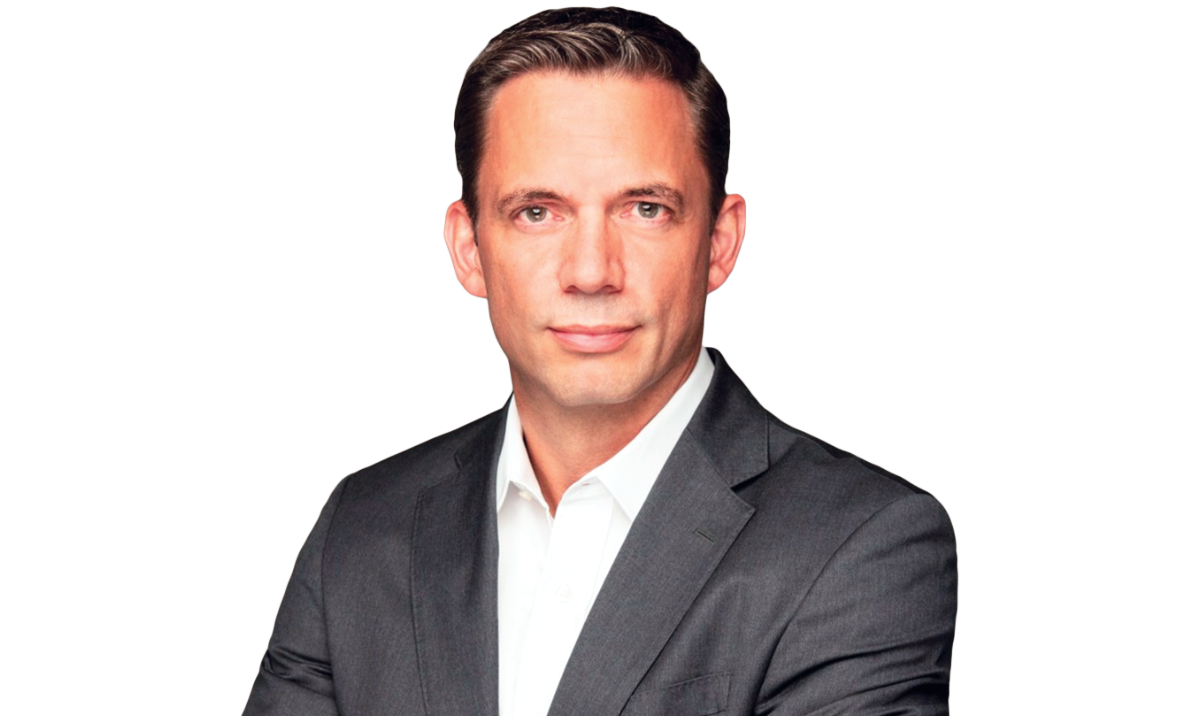RIYADH: Saudi Arabia’s logistics sector has undergone a remarkable transformation in recent years, fueled by visionary initiatives like Vision 2030 and the National Industrial Strategy. As the sector continues to evolve, what groundbreaking strategies will drive it forward?
The Kingdom presents substantial opportunities for global logistics players. With a population of approximately 36 million and a gross domestic product of $1.81 trillion in purchasing power parity as of the end of 2023, Saudi Arabia is a central hub for expansive trade routes supported by world-class infrastructure.
Another major catalyst for growth is Saudi Arabia securing the bids for Expo 2030 and the 2034 FIFA World Cup — both of which will attract substantial global business opportunities, opening new channels for trade and commerce.
Industry analysts are confident that the Kingdom is only going to attract more global players into the sector, with Hakan Lanfredi, member of the executive board at Dussmann Group telling Arab News: “For international logistics firms, these developments present lucrative opportunities to establish or expand operations, leveraging major global events and the rising need for advanced supply chain solutions.”
Dominik Baumeister, PwC Middle East head and global partner of transport and logistics echoed that sentiment, and told Arab News the existence of untapped opportunities within Saudi Arabia’s logistics industry that could be attractive to global companies.
“There are several whitespaces in Saudi Arabia’s logistics landscape that offer interesting opportunities for global players. In particular, the logistics services space is still in its early stages of development, and more specifically in Freight Forwarding, 3PL, and warehousing,” Baumeister said.
He added: “Airport and port privatization is an ongoing effort, and roads, while perhaps on the periphery of logistics, are opening up as a public private partnership environment.”
Lanfredi also flagged the surge in e-commerce and last-mile delivery services, fueled by increasing digital consumer engagement.
“This shift necessitates robust, agile logistics solutions to meet growing consumer expectations and delivery efficiencies,” he said.
Emerging logistics hotspots
Saudi Arabia is swiftly creating several hubs for logistics, assisted by important government programs and an advantageous business environment.
“Besides NEOM and the Riyadh Logistics Park, the Eastern Province has emerged as a key logistics hub due to its proximity to major oil operations and the King Abdulaziz Port,” Saud Al-Sulaiman, CEO of Saudi investment firm Alsulaiman Group, told Arab News.
He added: “These hotspots are attractive due to their advanced logistical infrastructures and strategic positions that facilitate both regional and international trade.”
Dussmann Group’s Lanfredi also noted a prime example of a logistic hotspot is the creation of the Integrated Logistics Bonded Zone in Riyadh, as it offers several attractive incentives to investors and businesses.
“It offers direct access to a vast market of 5 billion people across Europe, Asia, and Africa within an eight-hour flight range,” he said.

There are several whitespaces in Saudi Arabia’s logistics landscape that offer interesting opportunities for global players.
Dominik Baumeister, PwC Middle East Head and Global Partner of Transport and Logistics
Lanfredi added: “The ILBZ is designed to establish the Kingdom as the region’s premier logistics hub, providing significant incentives like a 50-year tax holiday, 100 percent foreign ownership, and efficient goods processing where items can be market-ready within just four hours of arrival.”
He also noted additional notable hotspots include the Dammam Free Zone and various free zones along the strategic Red Sea corridor.
“Jizan is emerging as a key node on the Silk Road, highlighting its growing importance in global trade routes. These zones benefit from advanced infrastructure and strategic positioning, which are bolstered by governmental support and regulatory enhancements,” he continued.
Technological innovation
According to PwC, the Kingdom is seeing a focus on improving efficiency and competitiveness through technological innovation.
“In Saudi Arabia’s logistics sector, significant strides are being made in technological innovation to boost efficiency and competitiveness,” Baumeister said.
He added: “Saudi customs is enhancing its capabilities through single window initiatives and integration into various data flows, with support from port operators, shipping lines, and airlines.”
He also noted that PwC is witnessing the emergence of innovative technologies, some homegrown, particularly in the e-commerce and parcel space.
Baumeister referred to examples of this including geospatial solutions coupled with AI, and new ways of collecting and analyzing multiple data sources
“These technological advances will support the Kingdom’s Vision 2030 journey, provide more optimized operations, and predictive analytics for future projects,” he said.
Navigating uncertainties
There are challenges facing the logistics sector in Saudi Arabia, and stakeholders are actively addressing them to facilitate growth and ensure operational efficiency.
According to Dussmann Group’s Lanfredi, the challenges are threefold, with the first being the complex navigation of customs and regulatory framework, specifically for new entrants and international companies.
“The need for compliance across various levels — local, regional, and international — adds layers of complexity to logistics operations,” he said, adding that this can be addressed by providing “streamlined customs clearance services” through gateways for sea, air, and ground transport.
Managing extreme temperatures in the Middle East is the second area that needs consideration, as this can complicate the storage and transportation of goods that are sensitive to fluctuations in climate.

This shift necessitates robust, agile logistics solutions to meet growing consumer expectations and delivery efficiencies.
Hakan Lanfredi, executive board member at Dussmann Group
“Specialized capabilities in cold-chain logistics, utilizing advanced technology for live temperature control and monitoring at each step of the supply chain are necessary requirements for professional service providers,” he explained.
The third challenge is a shortage of skilled labor in the logistics sector, particularly in emerging fields such as automation and robotics.
This can result in operational inefficiencies and increased costs for companies. To address this issue, initiatives supporting workforce development, such as partnerships with institutions like the Saudi Logistics Academy, are essential.
By investing in training and education, logistics providers not only improve their operational capabilities but also contribute to preparing a new generation of skilled professionals specifically tailored for the logistics industry in Saudi Arabia.
PwC highlighted the potential for Saudi Arabia to become a leading player in the global logistics industry through strategic collaboration between the public and private sectors.
“Saudi Arabia’s megaprojects and mega events will create additional logistics capability and capacity that can provide significant competitive advantages for the country,” Baumeister said.
He continued: “As competition increases across the region, Saudi Arabia sets itself apart with its significant import activity and a robust diversification agenda.”
With critical ports in strategic locations, competitive advantages in aviation, and opportunities for land transport connectivity, Saudi Arabia is positioned to play a pivotal role in linking freight corridors from India to Europe.
Additionally, over the next five to 10 years, Lanfredi is anticipating that Saudi Arabia is poised for a transformative shift and growth, in line with the nation’s strategic commitment to sustainability as outlined in the Saudi Green Initiative and Vision 2030.
FASTFACT
By investing in training and education, logistics providers not only improve their operational capabilities but also contribute to preparing a new generation of skilled professionals specifically tailored for the logistics industry in Saudi Arabia.
“These policies are steering the sector towards green logistics through the electrification of transportation fleets, the integration of renewable energy sources into logistics operations, and the adoption of sustainable supply chain practices,” he said.
He also underlined the shift towards sustainable practices in the transportation and logistics industry.
Furthermore, the use of solar energy in warehouses is highlighted as another example of this sustainability shift.
“Additionally, the rapid digital transformation, especially in payment systems, is reshaping the logistics landscape,” Lanfredi said.
He added: “An increase in digital payments in Saudi Arabia is transforming consumer behaviors and e-commerce logistics, simplifying last-mile delivery processes, and enhancing operational efficiencies.”
Lanfredi highlighted that significant infrastructure upgrades and favorable regulations are driving a transition towards a more integrated, efficient, and sustainable logistics sector.
This shift aligns with Saudi Arabia’s Vision 2030 goals for economic diversification and digital transformation.
Looking ahead, Al-Sulaiman also envisions transformative growth for Saudi Arabia’s logistics sector with an anticipated annual growth rate exceeding 10 percent.
“This growth will be propelled by continued technological advancements, including artificial intelligence, internet of things, and blockchain integration, enhancing operational efficiency,” Al-Sulaiman said.
He added: “Moreover, sustainability will be a key focus, with initiatives such as adopting electric vehicles and energy-efficient warehouses to align with global trends and attract international partners.”
They further explained that Saudi Arabia’s logistics sector plans to strengthen its connections with global supply chains.
“Expansion of port capacities, enhancement of multimodal transport links, and simplification of customs processes will facilitate smoother international trade, solidifying Saudi Arabia’s role as a critical hub in global commerce,” Alsulaiman continued.
These developments align with Vision 2030 objectives and global environmental, social, and governance trends, positioning the Kingdom as a leader in sustainable and innovative logistics solutions.


























